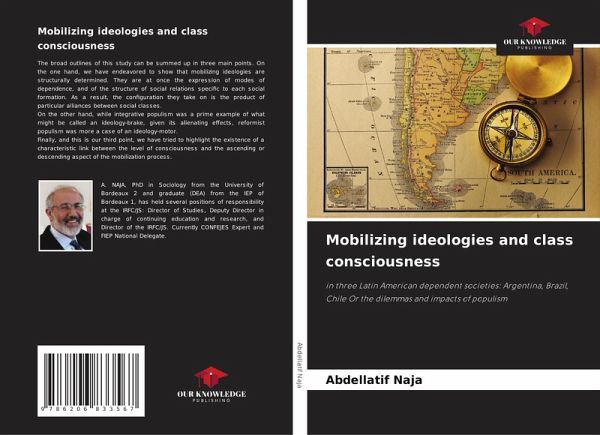
Mobilizing ideologies and class consciousness
in three Latin American dependent societies: Argentina, Brazil, Chile Or the dilemmas and impacts of populism
Versandkostenfrei!
Versandfertig in 6-10 Tagen
40,99 €
inkl. MwSt.

PAYBACK Punkte
20 °P sammeln!
The broad outlines of this study can be summed up in three main points. On the one hand, we have endeavored to show that mobilizing ideologies are structurally determined. They are at once the expression of modes of dependence, and of the structure of social relations specific to each social formation. As a result, the configuration they take on is the product of particular alliances between social classes.On the other hand, while integrative populism was a prime example of what might be called an ideology-brake, given its alienating effects, reformist populism was more a case of an ideology-m...
The broad outlines of this study can be summed up in three main points. On the one hand, we have endeavored to show that mobilizing ideologies are structurally determined. They are at once the expression of modes of dependence, and of the structure of social relations specific to each social formation. As a result, the configuration they take on is the product of particular alliances between social classes.On the other hand, while integrative populism was a prime example of what might be called an ideology-brake, given its alienating effects, reformist populism was more a case of an ideology-motor.Finally, and this is our third point, we have tried to highlight the existence of a characteristic link between the level of consciousness and the ascending or descending aspect of the mobilization process.












